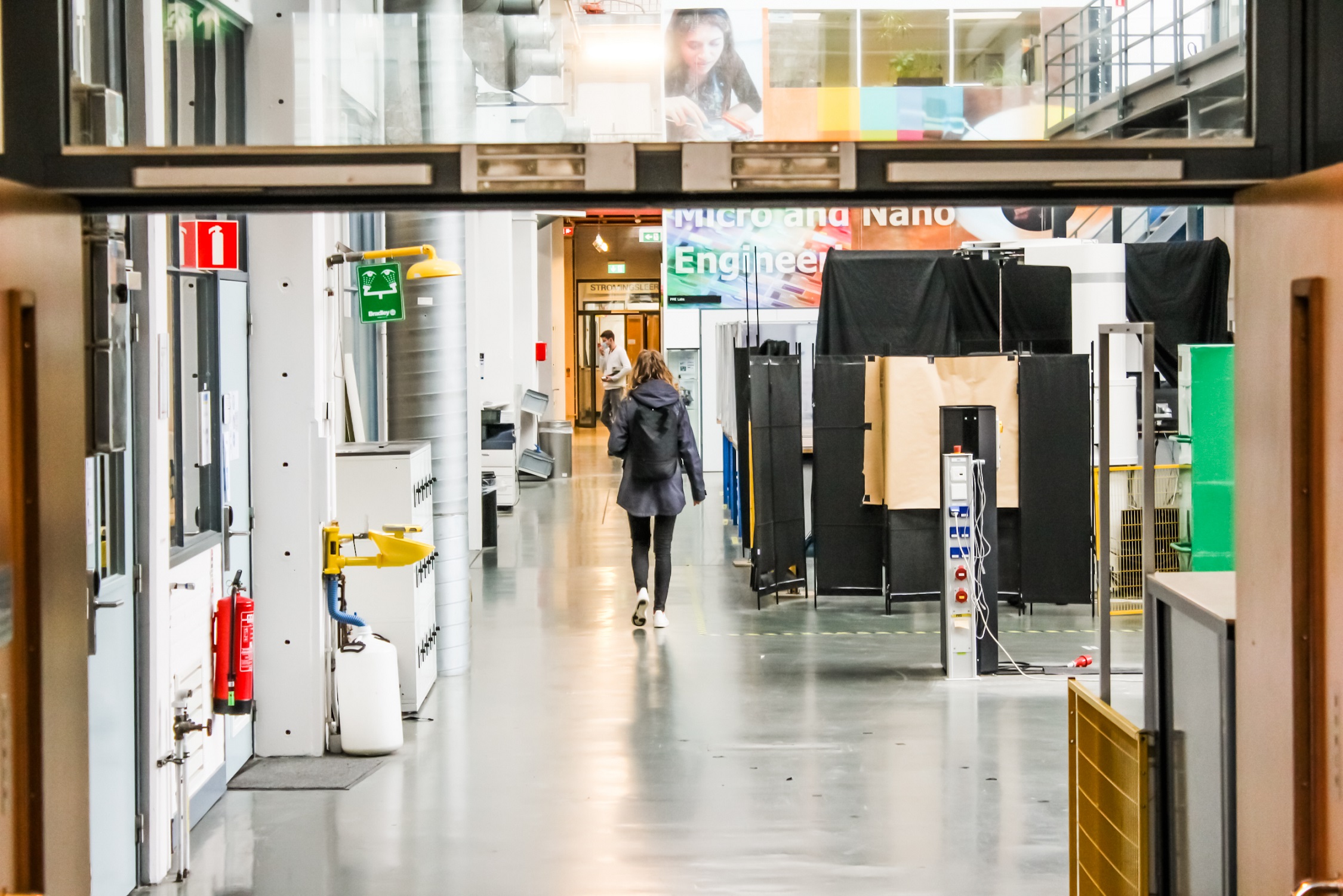Students evaluate TU Delft master programmes above average, shows the recently published ‘Keuzegids Masters’. There are exceptions too though.
(Photo: Dalia Madi)
The ‘Keuzegids’ – the general university listing for the Netherlands – as is the case with the ‘Keuzegids Universiteiten’ (in Dutch), is based on scores in the 2019 version of the annual Nationale Studenten Enquête (NSE, national student survey). Plusses, minuses and zeros in comparative tables show whether students consider a degree programme worse, equal or better than the average master’s degree programme.
But what do these previous assessments say now that all universities have given education online for more than a year? “Luckily they still say something about student satisfaction,” says Asta Laterveer-van der Marel, Data Analyst for the ‘Keuzegids’. “In the case of small degree programmes, we always collate the scores of the last three years as we believe that the outcomes of the last three years are still current. Over the years, we do see however, that degree programmes improve or get worse. This shift usually happens over the course of a few years.”
The evaluation for TU Delft masters are largely comparable with the outcomes of the ‘Keuzegids Masters 2019’ (in Dutch). The Applied Mathematics degree programme stood out. The programme, tests, teachers, ‘studiability’, facilities and challenging education were evaluated with a ‘+’ and the supervision even got a ‘++’. Geomatics (seven below averages) and Marine Technology (six below averages) scored low.
Personal contact
What sets the Applied Mathematics degree programme apart in the ‘Keuzegids’? This programme scores eight plusses. The Degree Programme Director Martin van Gijzen has an idea. “I believe that students place value on teachers being generally easily accessible. Despite the growth over the last few years, there is still a lot of space for personal contact.”
Students also get plenty of space to give feedback. “Apart from the standard Evasys questionnaires, there is a master’s information meeting every quarter where teachers and students can informally discuss the semester. And there is the formal evaluation meeting.” However, to Van Gijzen, the most important factor is the contact with the study association. “There is regular consultation with the Commissioner of Mathematics. Should there be an issue that needs attention, we hear it quickly.”
Apart from Applied Mathematics, the Complex System Engineering & Management, Aerospace Engineering and Life Science and Technology degree programmes scored well.
‘We regularly flag issues’
Tijn Sewandono, Education Commissioner of S.V. Life (the Life Science and Technology study association) believes that for his degree programme this is partly down to the dedication of the teachers. “In the subjects with smaller groups of students in particular, there is always plenty of space for questions and discussion. Further, the range of specialisations and electives are quite comprehensive and there are plenty of group projects and assignments.”
As the Commissioner of Education, he knows what is going on. “We regularly flag issues and the degree programme commissioners listen. For example, this year the content of one of the subjects was adjusted to avoid exceeding the study workload. The degree programme Director also asked for students’ input this year about their preferred adjustments to next year’s curriculum.”
Improvements
Peter de Vos, Degree Programme Director at Marine Technology is very disappointed that ‘his’ degree programme scored badly in the ‘Keuzegids’. “I was involved in all sorts of evaluations and these constantly gave a different, more positive, image than the NSE figures suggest.”
De Vos hopes that the score of the degree programme will be more positive in the next evaluation as some changes have been rolled out since 2019. “Before, the master consisted of two tracks with two or three specialisations. Now there is just one track with five different specialisations. This strengthens the focus on maritime technology and gives students greater choice in specialising in their areas of interest.” Personnel changes over the last couple of years too may lead to a more positive evaluation on the questions covering teachers, scientific education and supervision, says De Vos.
‘The influence of the corona crisis is unmistakeable’
He is also surprised by the below average score on practice-based learning. “We have an incredibly well defined area of application – ships and other maritime objects. Maybe we score badly because some students think that we are not practice-oriented enough instead of too much. If this is the case, I would point to inaccurate expectations of an applied academic degree programme.”
Corona factor
As the students’ evaluations were based on the 2019 NSE data, the editorial board of the ‘Keuzegids’ decided not to issue any ‘advice’ on degree programmes. Laterveer-Van der Marel says that “We expect the first measurable results which include corona only this summer. We will thus not look back three years in the next ‘Keuzegids’ as the changes that corona brought do not allow this.”
According to Sewandono and Van Gijzen, these changes to the trend could be positive. Sewandono says that “I think that everyone – students and teachers – is now completely used to online education and everyone understands that we just have to get through it. In this context, students are still satisfied.”
This is no different in Applied Mathematics. “The influence of the corona crisis is unmistakeable, but students appreciate the efforts of teachers to give good education,” says Van Gijzen. Still, he believes that online education does have its limitations. “The personal contact between teachers and students is simply more difficult, but I hope that students’ evaluations remain positive. We will do everything we can to achieve this.”



Comments are closed.